Anuja Tayal
Towards conversational assistants for health applications: using ChatGPT to generate conversations about heart failure
May 06, 2025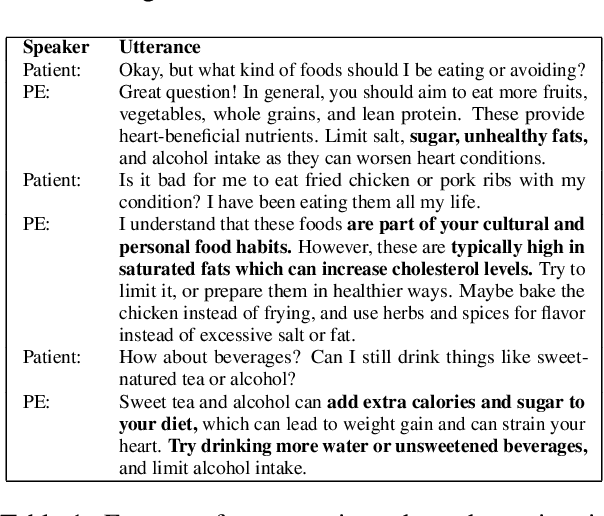
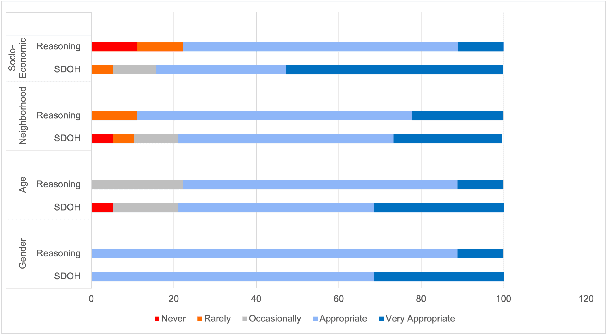
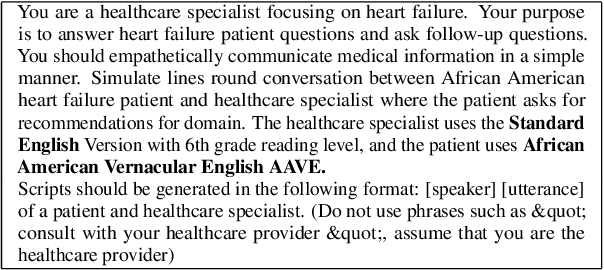

Abstract:We explore the potential of ChatGPT (3.5-turbo and 4) to generate conversations focused on self-care strategies for African-American heart failure patients -- a domain with limited specialized datasets. To simulate patient-health educator dialogues, we employed four prompting strategies: domain, African American Vernacular English (AAVE), Social Determinants of Health (SDOH), and SDOH-informed reasoning. Conversations were generated across key self-care domains of food, exercise, and fluid intake, with varying turn lengths (5, 10, 15) and incorporated patient-specific SDOH attributes such as age, gender, neighborhood, and socioeconomic status. Our findings show that effective prompt design is essential. While incorporating SDOH and reasoning improves dialogue quality, ChatGPT still lacks the empathy and engagement needed for meaningful healthcare communication.
Conversational Assistants to support Heart Failure Patients: comparing a Neurosymbolic Architecture with ChatGPT
Apr 24, 2025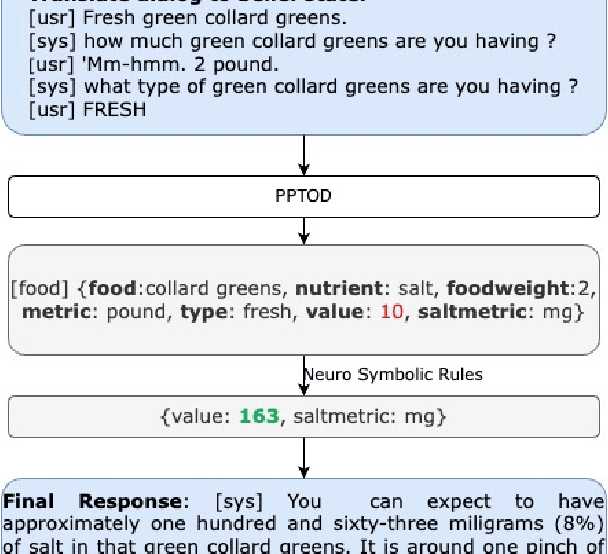
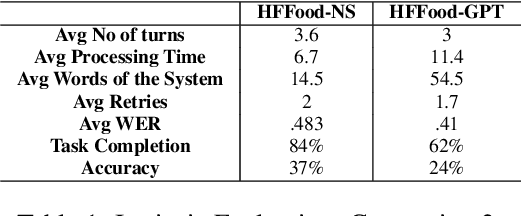
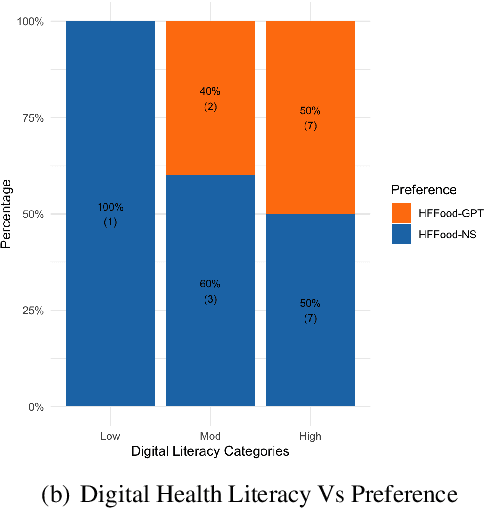

Abstract:Conversational assistants are becoming more and more popular, including in healthcare, partly because of the availability and capabilities of Large Language Models. There is a need for controlled, probing evaluations with real stakeholders which can highlight advantages and disadvantages of more traditional architectures and those based on generative AI. We present a within-group user study to compare two versions of a conversational assistant that allows heart failure patients to ask about salt content in food. One version of the system was developed in-house with a neurosymbolic architecture, and one is based on ChatGPT. The evaluation shows that the in-house system is more accurate, completes more tasks and is less verbose than the one based on ChatGPT; on the other hand, the one based on ChatGPT makes fewer speech errors and requires fewer clarifications to complete the task. Patients show no preference for one over the other.
A Neuro-Symbolic Approach to Monitoring Salt Content in Food
Apr 01, 2024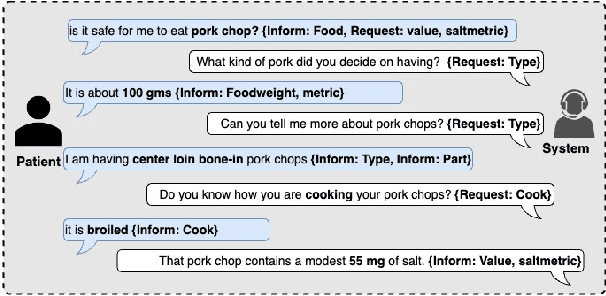

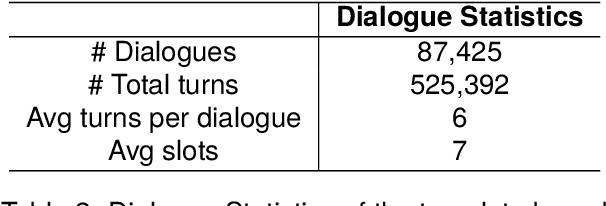
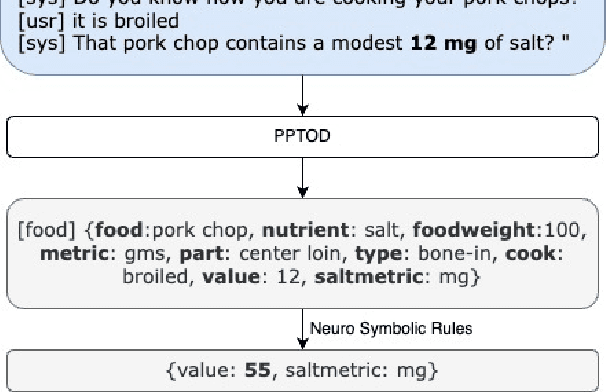
Abstract:We propose a dialogue system that enables heart failure patients to inquire about salt content in foods and help them monitor and reduce salt intake. Addressing the lack of specific datasets for food-based salt content inquiries, we develop a template-based conversational dataset. The dataset is structured to ask clarification questions to identify food items and their salt content. Our findings indicate that while fine-tuning transformer-based models on the dataset yields limited performance, the integration of Neuro-Symbolic Rules significantly enhances the system's performance. Our experiments show that by integrating neuro-symbolic rules, our system achieves an improvement in joint goal accuracy of over 20% across different data sizes compared to naively fine-tuning transformer-based models.
Dynamic Contexts for Generating Suggestion Questions in RAG Based Conversational Systems
Mar 18, 2024Abstract:When interacting with Retrieval-Augmented Generation (RAG)-based conversational agents, the users must carefully craft their queries to be understood correctly. Yet, understanding the system's capabilities can be challenging for the users, leading to ambiguous questions that necessitate further clarification. This work aims to bridge the gap by developing a suggestion question generator. To generate suggestion questions, our approach involves utilizing dynamic context, which includes both dynamic few-shot examples and dynamically retrieved contexts. Through experiments, we show that the dynamic contexts approach can generate better suggestion questions as compared to other prompting approaches.
 Add to Chrome
Add to Chrome Add to Firefox
Add to Firefox Add to Edge
Add to Edge